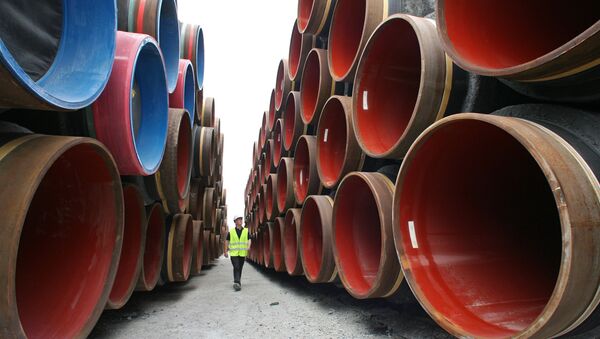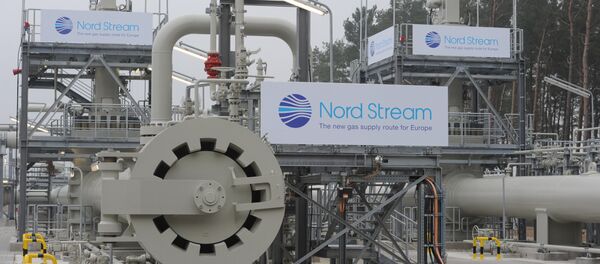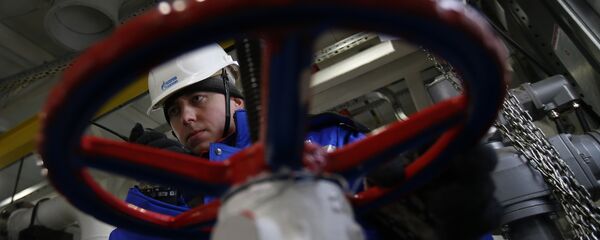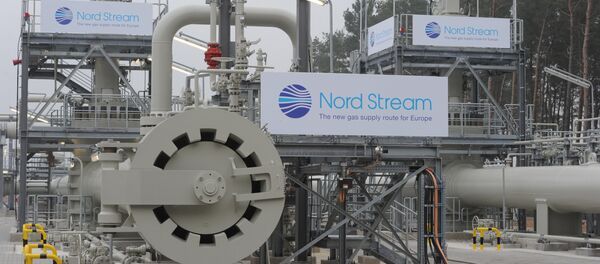Gabriel insisted that Berlin sees Nord Stream 2 in terms of economic, not politics.
Among those trying to undermine the initiative are gas transit countries which risk losing billions if the pipeline is built.
Previously, Germany expressed interest in Nord Stream 2. According to the operator company of the project, transportation cost through Nord Stream 2 would be 50 percent less than via Ukraine. This would easily cover the construction costs estimated at €8 billion.
Gabriel’s words reflect contradictions over the pipeline between German stakeholders and Brussels’ policy, Alexander Pasechnik, senior analyst at the Russian National Energy Security Fund, told Svobodnaya Pressa.
"Germany acts with a careful eye to the EU. It’s obvious that Gabriel wants to support German companies but he also wants to avoid political tensions with Brussels. Thus, his announcement is neutral," Pasechnik said.
According to the expert, Germany wants to defend its interests but does not want a rift with Brussels and the United States.
However, the project has fallen victim to European political games, especially amid the Ukrainian crisis, he added.
"This is all about politics. On the one hand, the reason is russophobic among European officials. Another reason is that Brussels doesn’t want Russia to dominate the European energy market. Meanwhile, Gazprom never said it wanted 50 percent or more in the market," Pasechnik said.
An agreement on Nord Stream-2, involving the expansion of the Nord Stream gas pipeline, was signed in early-September 2014, during the Eastern Economic Forum in Russia’s Vladivostok. The new consortium was established by Gazprom, E.ON, Shell, BASF/Wintershall, OMV and Engie. Gazprom holds 50 percent of shares while the others own 10 percent each.
In December 2015, Gazprom said Nord Stream-2 is expected for launch in the fourth quarter of 2019.
One of the main goals of the planned pipeline is to cut reliance on Ukraine in delivering Russian gas to Europe.
"The requirement about Ukraine is political. None of European laws and regulations requires this. In fact, the issue is purely commercial. Russia’s transit agreement with Ukraine expires in 2020, and Moscow may not prolong it," Konstantin Simonov, head of the National Energy Security Fund, told the Russian newspaper Vzglyad.
According to him, Europe accuses Russia of making political requirements while it is doing the same.
"If Ukrainian transit is a political matter Brussels should not accuse Russia of politicizing it. But this is a commercial issue Russia observes the terms of the contract," he pointed out.
If the EU increases consumption then Ukrainian gas transportation system will be needed for stable shipments. However, in 2015, Russia increased gas supplies to Europe and Turkey only by eight percent. Currently, this scenario is unlikely.
What is more, if Brussels abandons Nord Stream 2 it would have to deal with transit via Ukraine. The Ukrainian transit system is in poor condition. And the EU doesn’t want to invest in it, Pravosudov said.
According to him, Russia remains the only stable and reliable energy partner for European countries. Despite tensions and sanctions, European energy firms want to work in Gazprom, like in the example of Nord Stream 2.







